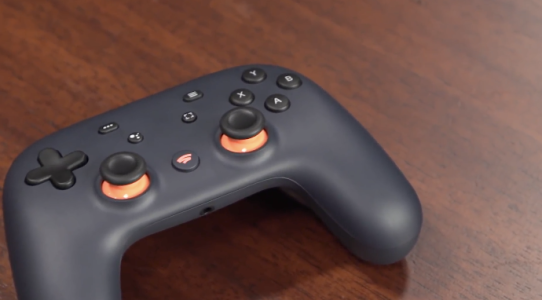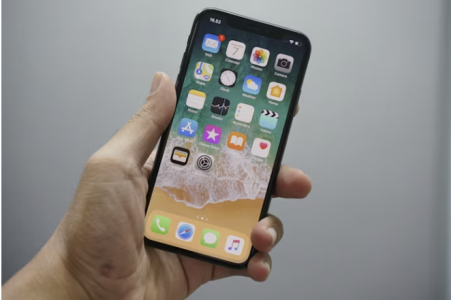A wave of tech issues could hit soon—are your devices on the list?
- Replies 0
You probably assume the tech you spent good money on will last for years—maybe even a decade.
But what if some of your favorite gadgets are already on a countdown to failure?
From thermostats to smartphones, several big-name devices are set to lose vital support this year.
Google's Nest Thermostats—known for their smart, app-based heating controls—are among the first to lose their edge.
Support is ending for three popular models, including the Nest Learning Thermostat Gen 1 (2011) and Gen 2 (2012/2014 EU).

As of October 25, 2025, these devices will no longer connect to the Google Home app or work with Google Assistant.
You’ll still be able to change the temperature—but only the old-fashioned way, by walking up and turning the dial.
Gamers aren’t safe either. The Google Stadia controller, which once powered cloud gaming sessions without a console, will lose support by December 31, 2025.
If you don’t update it to work as a general Bluetooth controller, it becomes an expensive paperweight.
Without the patch, the once-innovative gadget will go dark for good.

The most widespread impact might come from Windows 10, still running on millions of laptops and desktops worldwide.
Microsoft will stop providing updates, bug fixes, and security patches for the operating system on October 14, 2025.
That leaves users vulnerable to hacking, malware, and general system decay. If you’re still running Windows 10, it might be time to upgrade—before your private files are exposed.
LG smartphones, once popular and widely available, are also on the chopping block.
Though the company exited the phone business in 2021, its update servers are officially going offline on June 30, 2025.
That means no more Android updates—or security patches—which leaves any remaining LG phones vulnerable.
LG advises upgrading your device and software before that date to avoid being locked out of services or exposed to cyber threats.
Remember Skype? The once-dominant chat app is finally saying goodbye.
Microsoft will shut down Skype on May 5, 2025, after nearly 22 years of service.
You’ll still be able to use your Skype account in Microsoft Teams, and users can export chat logs and contacts.
But if you’ve clung to Skype as your go-to communication tool, it’s time to make the switch.
Even iPhones aren’t immune to the end-of-life list. Apple recently added the iPhone 6S—released back in 2015—to its “vintage” list.
That means limited hardware repair options, and no guaranteed support at official Apple Stores.
Worse, it can only run iOS 15, leaving it years behind on important security and privacy updates.
Apple also classifies older iPhones like the iPhone 5c, 4s, and original iPhone 6 as “obsolete,” which means no more hardware support of any kind.
If you’re using one of these models, it’s no longer just about missing out on features—it’s about putting your data at risk.
These aging devices can’t keep up with new threats or new tech. For anything storing your private messages, contacts, or bank logins, an upgrade is now a matter of safety.
Just because your device powers on doesn’t mean it’s protected. If it’s no longer receiving updates—or soon won’t be—it becomes a soft target for hackers and an inconvenience for everyday use.
Whether it's a smart thermostat, a chat app, or your beloved phone, 2025 might be the year your gadget quietly stops being “smart.” So take a moment to check what you’re using—before it checks out on you.
Also read:

Are any of your gadgets on the 2025 retirement list? What’s your plan—hold out, update, or upgrade? Share your strategy and device stories in the comments—your insights could help someone dodge a tech disaster.
But what if some of your favorite gadgets are already on a countdown to failure?
From thermostats to smartphones, several big-name devices are set to lose vital support this year.
Google's Nest Thermostats—known for their smart, app-based heating controls—are among the first to lose their edge.
Support is ending for three popular models, including the Nest Learning Thermostat Gen 1 (2011) and Gen 2 (2012/2014 EU).

Google's Nest Thermostats will no longer connect to the Google Home app or work with Google Assistant. Image source: Google Nest / YouTube
As of October 25, 2025, these devices will no longer connect to the Google Home app or work with Google Assistant.
You’ll still be able to change the temperature—but only the old-fashioned way, by walking up and turning the dial.
Gamers aren’t safe either. The Google Stadia controller, which once powered cloud gaming sessions without a console, will lose support by December 31, 2025.
If you don’t update it to work as a general Bluetooth controller, it becomes an expensive paperweight.
Without the patch, the once-innovative gadget will go dark for good.

The Google Stadia controller, which once powered cloud gaming sessions without a console, will lose support by December. Image source: IGN / YouTube
The most widespread impact might come from Windows 10, still running on millions of laptops and desktops worldwide.
Microsoft will stop providing updates, bug fixes, and security patches for the operating system on October 14, 2025.
That leaves users vulnerable to hacking, malware, and general system decay. If you’re still running Windows 10, it might be time to upgrade—before your private files are exposed.
LG smartphones, once popular and widely available, are also on the chopping block.
Though the company exited the phone business in 2021, its update servers are officially going offline on June 30, 2025.
That means no more Android updates—or security patches—which leaves any remaining LG phones vulnerable.
LG advises upgrading your device and software before that date to avoid being locked out of services or exposed to cyber threats.
Remember Skype? The once-dominant chat app is finally saying goodbye.
Microsoft will shut down Skype on May 5, 2025, after nearly 22 years of service.
You’ll still be able to use your Skype account in Microsoft Teams, and users can export chat logs and contacts.
But if you’ve clung to Skype as your go-to communication tool, it’s time to make the switch.
Even iPhones aren’t immune to the end-of-life list. Apple recently added the iPhone 6S—released back in 2015—to its “vintage” list.
That means limited hardware repair options, and no guaranteed support at official Apple Stores.
Worse, it can only run iOS 15, leaving it years behind on important security and privacy updates.
Apple also classifies older iPhones like the iPhone 5c, 4s, and original iPhone 6 as “obsolete,” which means no more hardware support of any kind.
If you’re using one of these models, it’s no longer just about missing out on features—it’s about putting your data at risk.
These aging devices can’t keep up with new threats or new tech. For anything storing your private messages, contacts, or bank logins, an upgrade is now a matter of safety.
Just because your device powers on doesn’t mean it’s protected. If it’s no longer receiving updates—or soon won’t be—it becomes a soft target for hackers and an inconvenience for everyday use.
Whether it's a smart thermostat, a chat app, or your beloved phone, 2025 might be the year your gadget quietly stops being “smart.” So take a moment to check what you’re using—before it checks out on you.
Also read:
- The unexpected history behind Bluetooth—how did it get its name?
- Just for fun (and function): 4 gadgets that make home life a breeze
Key Takeaways
- Google will end support for several Nest Thermostat models in October 2025, limiting them to manual use only.
- Microsoft will discontinue Windows 10 updates in October 2025, leaving millions of PCs vulnerable to security threats.
- LG smartphones will no longer receive software or security updates after June 30, 2025.
- Skype will shut down on May 5, 2025, and Apple has labeled the iPhone 6S as "vintage," cutting off support and updates.







